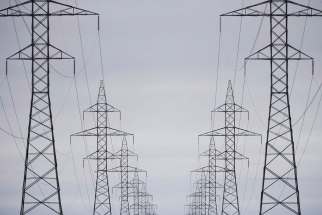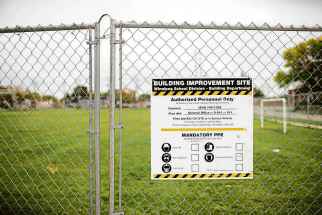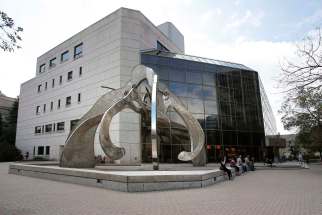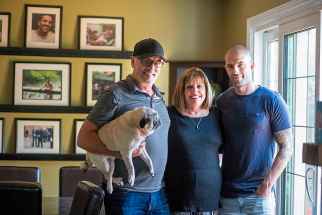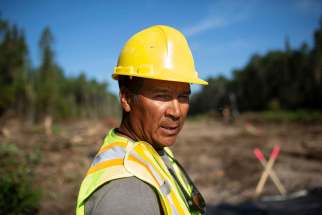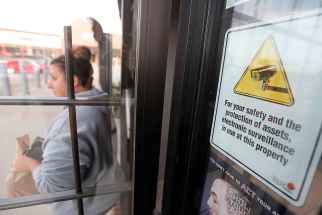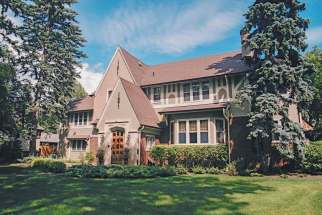Official finds low risk of lead poisoning at schoolyard
Read this article for free:
or
Already have an account? Log in here »
To continue reading, please subscribe:
Monthly Digital Subscription
$0 for the first 4 weeks*
- Enjoy unlimited reading on winnipegfreepress.com
- Read the E-Edition, our digital replica newspaper
- Access News Break, our award-winning app
- Play interactive puzzles
*No charge for 4 weeks then price increases to the regular rate of $19.00 plus GST every four weeks. Offer available to new and qualified returning subscribers only. Cancel any time.
Monthly Digital Subscription
$4.75/week*
- Enjoy unlimited reading on winnipegfreepress.com
- Read the E-Edition, our digital replica newspaper
- Access News Break, our award-winning app
- Play interactive puzzles
*Billed as $19 plus GST every four weeks. Cancel any time.
To continue reading, please subscribe:
Add Free Press access to your Brandon Sun subscription for only an additional
$1 for the first 4 weeks*
*Your next subscription payment will increase by $1.00 and you will be charged $16.99 plus GST for four weeks. After four weeks, your payment will increase to $23.99 plus GST every four weeks.
Read unlimited articles for free today:
or
Already have an account? Log in here »
Hey there, time traveller!
This article was published 14/09/2018 (2645 days ago), so information in it may no longer be current.
A local health official is reassured the risk of lead poisoning for students at Weston School is “very low”.
Dr. Lisa Richards, medical officer of health with the Winnipeg Regional Health Authority, visited the school’s grounds on Friday. She said the playground is covered either with sod, concrete or pea gravel.
“I didn’t see a lot of exposed soil. So, I believe that the risk to the students and the public at large is very low as a result of the lead levels that were documented a decade ago,” she said in an interview.
On Thursday, it was revealed that 2007 and 2008 soil test results in several Winnipeg neighbourhoods previously found to have elevated areas of lead were not disclosed to the public by the former NDP government. At a number of locations, including Weston School, as well as in Point Douglas, Minto and Wolseley, lead concentrations in soil exceeded national guidelines.
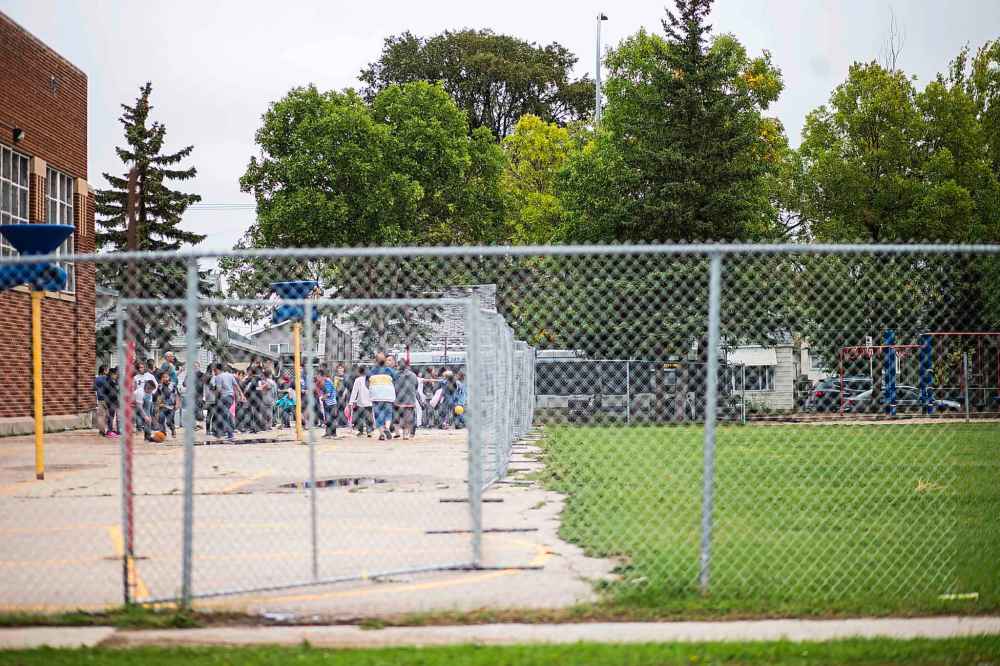
As a precaution, Winnipeg School Division erected a fence around the sports field at Weston School on Thursday to keep students out. After a tour of the grounds by health and environmental experts on Friday, the division announced that the playground will re-open by mid-next week. In the interim, a few small areas of exposed soil will be covered “out of an abundance of caution,” Richards said.
The province has vowed to quickly retest all sites that were tested a decade ago to determine current soil lead levels. The results are expected by early December, Health Minister Cameron Friesen said.
Richards said Friday that new testing at Weston School is likely to reveal a drop in contamination levels from a decade ago since lead tends to “migrate down the soil profile over time” and the main sources of contamination have been eliminated. Vehicles no longer burn leaded gas, and a smelter that once operated in the area is now closed.
While concerns over contaminated soils in St. Boniface and other communities have dominated the news, a greater health danger is the potential exposure to lead in drinking water and from ingesting the dust from lead paint, Richards said.
‘I didn’t see a lot of exposed soil. So, I believe that the risk to the students and the public at large is very low as a result of the lead levels that were documented a decade ago’
– Dr. Lisa Richards, medical officer of health with the Winnipeg Regional Health Authority
“There is definitely more serious potential exposures to lead in our own homes,” she told the Free Press.
Richards said there are still thousands of homes in older areas of town with service water lines made of lead.
Officials advise that anyone with lead pipes avoid drinking tap water that has been standing in the plumbing system for a long time, such as overnight or during the work day. Flush the toilet, take a shower or start a load of laundry first thing in the morning or after work to clear the water from the service line then run the tap until the water turns cold to minimize the risk, they advise.
In older homes with lead paint, it’s important to vacuum regularly, Richards said. “It’s usually children who are crawling around and playing on the floor (who may be exposed).”
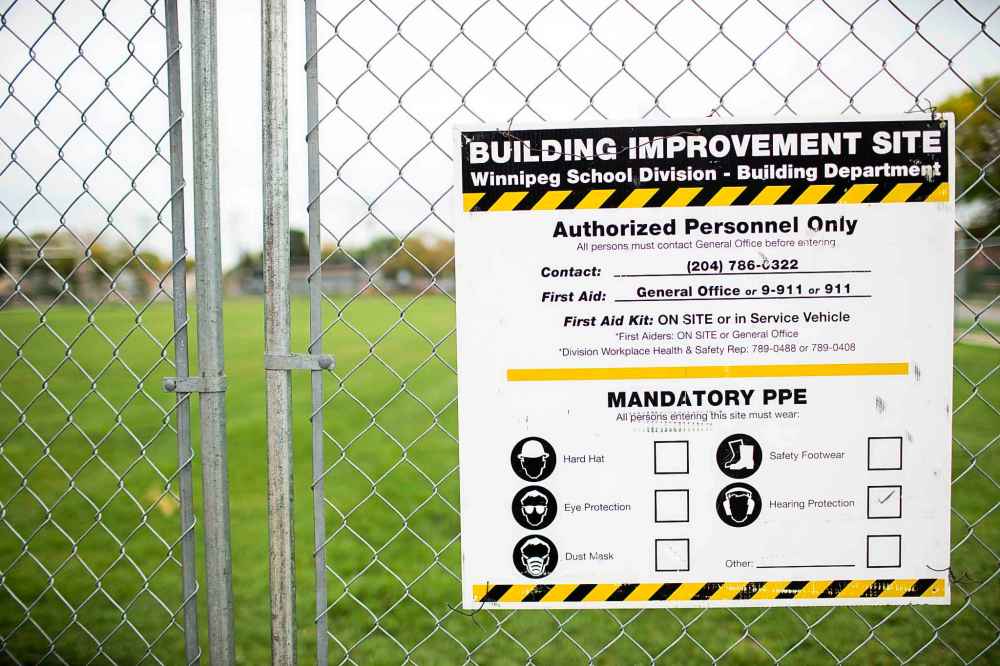
Lead enters the body if it is inhaled in dust or swallowed. After gardening, wash your hands, officials say. Wash vegetables well before eating them.
Richards said children at Weston School should be encouraged to wash their hands before snack or lunch time.
The same advice applies to kids attending other schools or parks where soil lead levels were deemed to be higher than national guidelines in tests conducted in 2007. These include: Archibald Tot Lot, Maryland Tot Lot, Spence Tot Lot, Lord Nelson School, Gordon Bell High School, Dufferin School, and Fort Rouge School.
In a statement Friday, the city said homes and businesses built before 1946 in the inner city and before the mid-1950s in the suburbs may have a lead water service pipe. “This accounts for roughly 13 per cent of the approximately 198,000 service pipes that connect to City of Winnipeg water mains.”
‘There is definitely more serious potential exposures to lead in our own homes’
– Dr. Lisa Richards
The city has a lead water service pipe replacement program. Any time crews are replacing or repairing a water main where an existing lead service pipe is encountered, the portion of the service pipe that is city-owned is replaced. All city-owned lead pipes are replaced with a lead-free pipe.
Property owners are responsible for the water pipe running from their home to the shut-off valve at the property line. During a water main renewal, property owners are advised they can replace their part of the water pipe at the same time, at their own cost.
Meanwhile, Winnipeg has been adding orthosphosphate to control the level of lead in Winnipeg’s tap water since 2000. The city says Winnipeg’s tap water is safe to drink and complies with provincial regulations and Canadian guidelines for drinking water quality.
larry.kusch@freepress.mb.ca

Our newsroom depends on a growing audience of readers to power our journalism. If you are not a paid reader, please consider becoming a subscriber.
Our newsroom depends on its audience of readers to power our journalism. Thank you for your support.





